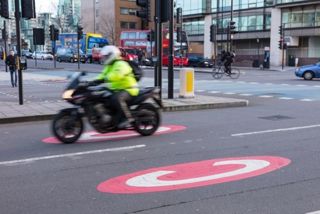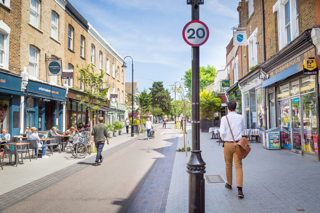The transport legacy from the London 2012 Olympic Games could benefit fleets for years to come.
Last summer, 15,000 athletes and 12 million spectators descended on the capital for the ‘greatest show on earth’.
But despite concerns that the capital’s transport network would grind to a halt, planners and fleets worked together to keep London moving.
Alex Jolly, general manager value creation, DHL Supply Chain, said: “Meticulous planning and cross-industry collaboration was key to ensuring a smooth operation, and thanks to measures such as out-of-hours deliveries, consolidation centres and greater communication, the impact on supply chains was mitigated.”
A new report from the Chartered Institute of Logistics and Transport (CILT) UK hails the Games as a huge success. CILT states that 45% of freight operators retimed their services – in fact, 36% of logistics operators moved to out-of-hours deliveries during the summer of 2012.
Jolly said: “Out-of-hours deliveries were one of the most popular initiatives as they avoided daytime parking and loading restrictions while also reducing costs and emissions.
“Drivers were also able to make more efficient journeys, using quicker and more reliable routes.”
Its success has been recognised by Transport for London (TfL) in its ‘transport legacy – one year on’ report.
TfL has set up a freight delivery unit and will continue the freight forum, which brings together those making, receiving and managing freight and logistics in London, to build on the lessons from the Games.
Permanent guidance to be published early next year
It has also issued a code of practice, encouraging the use of ‘quiet deliveries’ of goods during non-standard delivery hours, the success of which has led TfL to develop permanent guidance. This is expected to be published in early 2014.
The Department for Transport already has a commitment from the Logistics Growth Review in 2011 to re-write its existing guidance on quiet deliveries, which is expected to be published this summer, and it too will incorporate lessons learned from the Games.
Natalie Chapman, the Freight Transport Association (FTA) head of policy for London, said: “Out-of-hours deliveries can provide real environmental, financial and important safety benefits.
This is not about a complete shift from daytime to night-time deliveries, but smoothing out the peaks and troughs over a 24-hour period to ensure greater utilisation of vehicles, reduce congestion and importantly reduce the potential for conflict between cyclists and pedestrians.”
TfL’s report also mentions the priority being given to improving kerbside access and reducing penalty charge notices (PCNs) for companies delivering essential goods and services in the capital.
The PCN Survey 2012, commissioned by the FTA, revealed a 50% leap in the number of PCNs being issued in London.
The 27 companies surveyed had paid £2.9 million in fines and experienced a rise in costs which was directly related to the increase in the number of PCNs issued on the capital’s roads.
Runners recruited to continue deliveries
Traffic management controls were another measure implemented during the Games. To overcome this, logistics operators invested in alternative delivery methods including trains, barges and bikes. DHL even recruited runners to complete deliveries on foot.
Alternative routes were also sought to get around the Olympic Route Network – CILT reported that 42% of freight operators used rerouting to maintain normal services despite restricted road access.
Jolly said: “Drivers were given daily briefings, before and after each shift, to pass on information, alongside a number of Twitter feeds which were set up to deliver travel information.”
However, the most visible transport legacy is the £6.5 billion invested in new and improved infrastructure, providing greater capacity and reliability across the transport network.
Sir Peter Hendy, London’s transport commissioner, concluded: “Transport played a vital role in the success of the London 2012 Games and the great steps we took to ensure it happened will not fade with time.”























Julian Cheyne - 16/08/2013 04:31
extraordinary rubbish! The article fails to recall the apocalyptic warnings issued by TfL and the Mayor telling people not to come into London and the impact on businesses who were begging the authorities to stop frightening people! and this rubbish about the £6.5billion expenditure. If this was spent on the Olympics it should be in the budget, taking it up to at least £16billion. Actually the Overground and DLR lines were going to be built anyway. This is simple feeble propaganda masked as journalism!